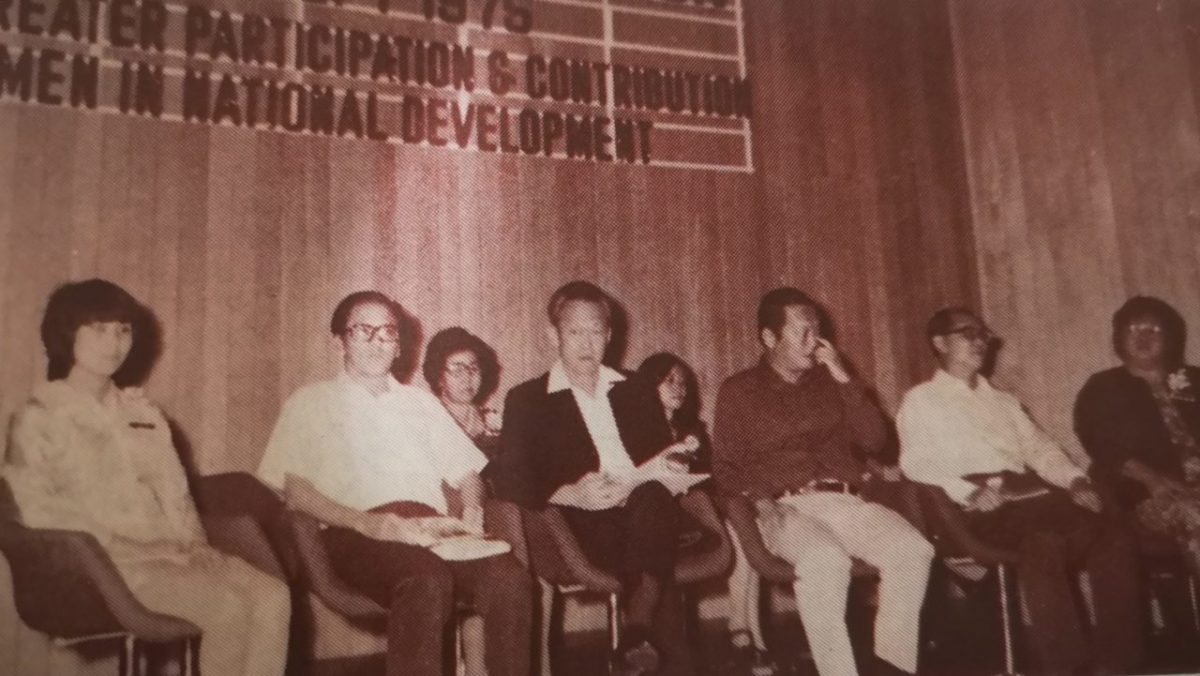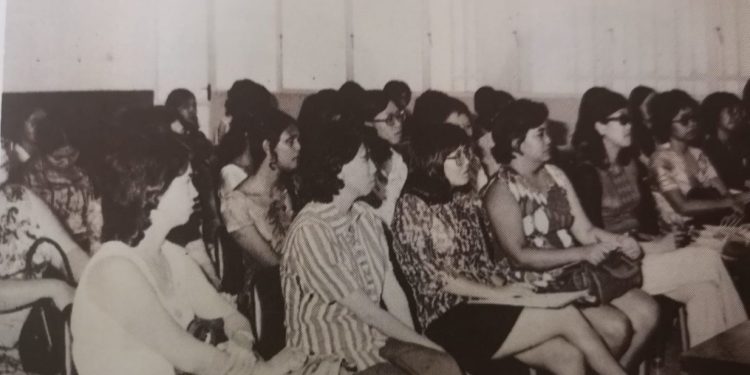The women in Singapore were having a quiet revolution – as then-Prime Minister Lee Kuan Yew said at the International Women’s Year Seminar in 1975.
Women made up some 30 per cent of the workforce that year. The figure stood impressive in 1975, compared to the 18 per cent in the late 1950s.
The International Women’s Year was the predecessor to the International Women’s Day on 8 March – a day celebrated every year in honour of women and their contributions to the world.
In his address, the late Mr Lee spoke about why it was important to eliminate every bias, prejudice and discrimination in opportunities for jobs and promotions – a thing many women are still facing in Singapore today.
Today, almost 45 per cent of the workforce in Singapore are women, and there’s no doubt that women are an asset to the economy.
However, many believe more can be done to improve women workforce participation and for them to take up leadership positions.

Wisdom from the Past
What lessons can we draw from the late Mr Lee’s speech? Here are some of his thoughts from the seminar.
(All quotes featured below of the late Mr Lee Kuan Yew are extracts from his speech at the NTUC’s International Women’s Year Seminar, 1 September 1975. Courtesy of National Archives Singapore.)
“The only differences between men and women workers are the physical and biological ones. Women are equal to men in intellectual capacity.”
Decades of research have shown unequivocally that men and women are equal in general intelligence (IQ).
However, there is now an opinion that emotional intelligence (EQ) is also critical to a worker’s performance at work.
According to research by EQ test provider Talentsmart, EQ is responsible for 58 per cent of performance in all types of jobs. And 90 per cent of top performers have high EQ.
Which gender do you think did better on the Talentsmart EQ test? You guessed it: Women. Certainly, an edge they can use at the workplace.
“Our problem, as they have found in the West, is that women have to break their careers, for four to six years, to bring up two or three children, and then resume their careers. This break in their careers can be minimised if we can organise new social institutions and organisations to help married women look after their children while they are at work. Well-run creches and kindergartens, near factories or homes, staffed by well-trained workers, should be part of our new social institutions.”
Companies in Singapore see an almost equal number of men and women when workers first start their careers in their 20s.
But last year, McKinsey Global Institute (MGI) observed that more women than men tended to permanently leave their careers in their 30s, especially after starting families.
What the late Mr Lee said is still happening in Singapore today. He was right, we need to minimise this.
We need more than social institutions like childcare centres. We need more companies to adopt flexible-work arrangements.
“Societies which do not educate and use half their potential because they are women, are those which will be the worse off. Those that do and face up to problems of new social and family relationships and new social institutions to help working wives to bring up the next generation are those most likely to provide better lives for their people.”
Men, especially husbands, play a big role in helping women progress further in this country. They are half the solution.
We should break gender-roles that we put on ourselves. Men can do house chores too; they can lend a hand in bringing up their children.
Shared parenting is the way forward. Bringing up the child should be the responsibility of not only the mother but also of the father. If we haven’t shifted our mindsets to think that this is okay, that this is the way forward, then there is still much work for us to do.

